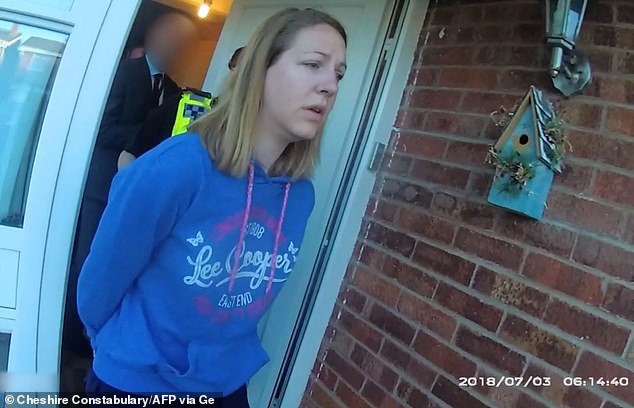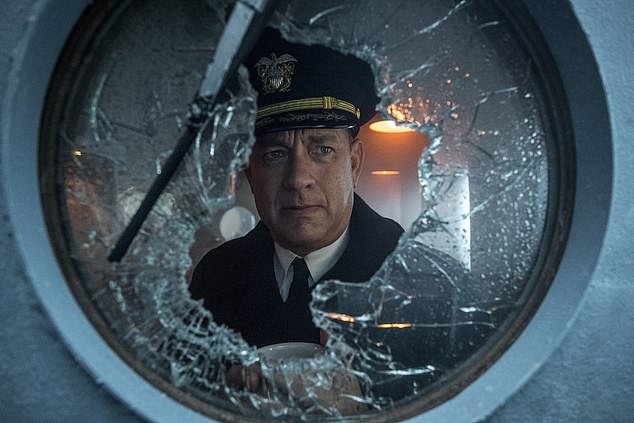Why is there such resistance to the campaign to reopen the case of Lucy Letby, the nurse who has been sentenced to death, in slow motion, for crimes which may not even have happened?
I’ve seldom seen such a potent case for allowing an appeal.
A panel of first-rate doctors say there were no crimes. They say her hospital ought to have been shut down because it just wasn’t up to the job.
Two trials produced no objective evidence that Ms Letby did anything wrong. Claims that she is guilty because she was on duty for lots of deaths have been dismissed as bilge by statisticians.
One of her main denouncers turns out to have been a bit, well, confused, about events he made much of in evidence. Prosecutors messed up door-swipe evidence, getting it the wrong way round.
An alleged confession turns out to be rubbish as well.
You may not care about what I think. That’s OK. But the fact that Lord Sumption, a former Justice of the Supreme Court, thinks she is ‘probably innocent’, must matter. He is not just one of the cleverest lawyers in the country. He has eight years’ experience of criminal trials as a Crown Court Recorder.
And yet I’m far from sure the courts will take a second look at the weird trials which convicted her. Weird? Well, several prosecution witnesses were allowed to stay anonymous for life, something almost unknown outside spy trials. And one of the main expert witnesses against Ms Letby was brutally denounced by an Appeal Court judge for his performance in a separate case.

Police bodycam footage of Lucy Letby being led away after her arrest
Despite this, the BBC can barely bring itself to mention that the conviction has been challenged.
A public inquiry still refuses to consider the possibility that a mistake has been made. Legions of politicians and commentators still sit on the fence, or worse.
On social media, supporters of the verdict constantly try to use the poor parents of the dead and damaged children. They tell doubters that their actions are distressing those parents, and so they should shut up. I’ve many times answered this argument here.
Some who insist that Ms Letby’s case should stay closed are in the police, the prosecution service and the media. They have heavily committed themselves to her guilt. While I wish they would change their minds, I can see why they don’t want to.
But are there other forces at work? I will be delicate here, but do some law firms, one working alongside a public relations agency, have an interest in keeping Ms Letby in her prison cell?
They are among those who are working to obtain compensation for the bereaved parents. All well and good. As far as I am concerned the parents deserve enormous compensation, whether Ms Letby is guilty or innocent. But as far as I can see, such payments will be at their highest if the hospital involved can be shown to have failed to stop a serial killer, when it should have detected and halted her actions. For this, Ms Letby needs to stay guilty.
What does this matter? Well, many injury lawyers in this country now operate on a no-win, no-fee basis. That obviously suits normal claimants, who have no money for lawyers’ fees.
But the other side of this is that, in some circumstances, such lawyers can claim what is called a ‘success fee’ if they win the case. By law, such a fee can be up to a maximum of 25 per cent of the compensation paid. That could be a lot.
Let us not presume this is what is going on. I did not. I found out, as far as I could, which law firms and which PR agency were involved in this. I contacted them and asked a simple question. Were they doing the work ‘pro bono’ – that is, were they doing it without payment, in the public interest?
This is hardly an insulting question. I was asking them ‘are you doing something good and generous?’ But the moment I asked it, they instantly broke off contact with me. No replies came to phone calls and emails. Recorded delivery letters arrived at their offices but have not yet been answered. Emails were delivered, but not replied to (one, I detected, was deleted unread). Well, I don’t want to convict anyone on purely circumstantial evidence. I am not even naming them. But am I not entitled to ask whether anyone has a powerful material interest in opposing the reopening of the case?
On Friday, BBC Radio 4’s Today programme devoted ages to an item about thieves who fill up their cars at petrol stations and drive off without paying. One victim complained that the police ignored this because they had ‘more important things to do’.
Nick Robinson, the presenter, was too grand to explode at this insulting excuse. And the programme was too lazy to ask the police what these ‘more important things’ are.
When will it sink in? The police are useless. Replace them, now, with men and women prepared to do the job.

Tom Hanks in Greyhound, based on The Good Shepherd by C.S. Forester
Hollywood’s cracked view of the past
The Covid panic pretty much sank Tom Hanks’s 2020 war movie Greyhound without trace. Even now it isn’t that simple to watch it on the web. It is based on one of my favourite books, C.S. Forester’s The Good Shepherd, about a devout, austere, rather bitter US Navy officer who finally gets a sea command, hunting German submarines, in 1942.
It’s worth seeking out, though modern attention spans mean it can’t spend much time on subtleties. I was pleased to see that the officer’s Christianity wasn’t cancelled. But the past is still a mystery to Hollywood.
He is shown addressing God as ‘You’, rather than ‘Thou’, unthinkable to a person of that generation. And, to soothe Irish sensibilities, ‘Londonderry’ is called ‘Derry’ – as would never have happened in 1942.
Also, the voices of unseen British Royal Navy officers don’t begin to sound as such men actually did. Such voices have now almost entirely gone.

The humble and rarely seen moped – considerably less dangerous than the electric motorbikes that now tear down our roads
This is an actual moped, a sad, slow, humble vehicle, compelled (quite rightly) to carry a number plate. I doubt if any now exist.
What we have instead are electric motorbikes, without number plates, capable of 60 miles an hour. Yet many in the media wrongly refer to them as ‘mopeds’. They aren’t. I wish they were.












